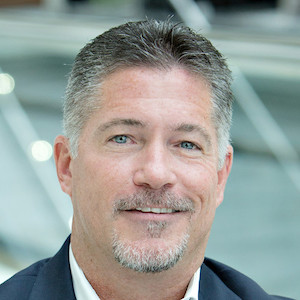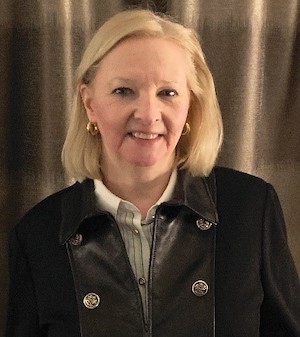Feature Articles
Optimal Flow: Building Open Organizations Where Leaders Can Emerge
 Previously in this series on open organizations and talent management, I've discussed the importance of cultivating an organization's open leaders by getting out of their way and letting them flourish. As someone invested in developing your organization's next generation of leaders, know that your goal here isn't to be entirely "hands off"; instead, your goal is to spend time building the systems and processes that help new leaders find their footing and unleash their passion. The truth is that leadership talent rarely develops on its own. Building these systems and processes is critical during your open organization's hybrid phase. In this article, I'll discuss what that means and why it's so important. I'll also offer a few crucial questions you should be asking yourself as you nurture talent during this phase of your organization's transformation.
Previously in this series on open organizations and talent management, I've discussed the importance of cultivating an organization's open leaders by getting out of their way and letting them flourish. As someone invested in developing your organization's next generation of leaders, know that your goal here isn't to be entirely "hands off"; instead, your goal is to spend time building the systems and processes that help new leaders find their footing and unleash their passion. The truth is that leadership talent rarely develops on its own. Building these systems and processes is critical during your open organization's hybrid phase. In this article, I'll discuss what that means and why it's so important. I'll also offer a few crucial questions you should be asking yourself as you nurture talent during this phase of your organization's transformation.
QUANTUM RISK - A Geek's Guide to the World of Risk
 Every once in a while, someone adds clarifying or new thoughts to an old practice, understanding, or belief. That's why authors and teachers are so plentiful because one can write about the same things using different words, vantage points, or exploratory insights and ideas…the endless beauty of the human experience and depths of cranial imagination. In this context, let me refer you to Mr. Tony Fish and his recent article "Quantum Risk: a wicked problem that emerges at the boundaries of our data dependency". To borrow from a modern day philosopher Forest Gump: I may not be a smart man, but I know what brilliance is. Mr. Fish in my view seems to have quite aptly inserted himself in a discussion between Hawking, Chesterton, Plato, and Aquinas. His article is packed with risk goodness and an expanding universe of understanding risk.
Every once in a while, someone adds clarifying or new thoughts to an old practice, understanding, or belief. That's why authors and teachers are so plentiful because one can write about the same things using different words, vantage points, or exploratory insights and ideas…the endless beauty of the human experience and depths of cranial imagination. In this context, let me refer you to Mr. Tony Fish and his recent article "Quantum Risk: a wicked problem that emerges at the boundaries of our data dependency". To borrow from a modern day philosopher Forest Gump: I may not be a smart man, but I know what brilliance is. Mr. Fish in my view seems to have quite aptly inserted himself in a discussion between Hawking, Chesterton, Plato, and Aquinas. His article is packed with risk goodness and an expanding universe of understanding risk.
Keeping Everyone in the Know: New CMS ADT Rule
 On March 9, 2020, the Centers for Medicare & Medicaid Services (CMS) issued the Interoperability and Patient Access Final Rule aimed at enhancing interoperability and increasing patient access to health information. This Final Rule contains a new Condition of Participation (CoP) that requires all hospitals, psychiatric hospitals, and Critical Access Hospitals to electronically share (via an electronic health record [EHR] or another electronic administrative system) event notifications (also referred as e-notifications) with other providers across the continuum of care. These event notifications should occur whenever patients have an emergency department (ED) or inpatient admission, discharges, or transfers (also known as ADTs) in community hospitals.
On March 9, 2020, the Centers for Medicare & Medicaid Services (CMS) issued the Interoperability and Patient Access Final Rule aimed at enhancing interoperability and increasing patient access to health information. This Final Rule contains a new Condition of Participation (CoP) that requires all hospitals, psychiatric hospitals, and Critical Access Hospitals to electronically share (via an electronic health record [EHR] or another electronic administrative system) event notifications (also referred as e-notifications) with other providers across the continuum of care. These event notifications should occur whenever patients have an emergency department (ED) or inpatient admission, discharges, or transfers (also known as ADTs) in community hospitals.
To Be An Open Leader, Listen To Your Heart
 Allowing talented leadership to excel in a more open organizational structure can determine a young company's success. But in order to transform into a more open organization, you'll need to provide that space for talented leaders to grow. This doesn't always come easy to leaders. Ultimately, however, the only way to do it is to begin with yourself-and to address the issue not only your head but also your heart, your feelings. You might do this in a number of areas, but in this article, I'll focus on how you currently make decisions in your organization.
Allowing talented leadership to excel in a more open organizational structure can determine a young company's success. But in order to transform into a more open organization, you'll need to provide that space for talented leaders to grow. This doesn't always come easy to leaders. Ultimately, however, the only way to do it is to begin with yourself-and to address the issue not only your head but also your heart, your feelings. You might do this in a number of areas, but in this article, I'll focus on how you currently make decisions in your organization.
How to Prepare for the API Requirements of the Cures Act
 As of April 5, 2021, the U.S. ONC Cures Act Final Rule Compliance Timeframe is in effect. Healthcare providers, Health IT developers, Health Information Exchanges (HIEs), and Health Information Networks (HINs) will have until October 6, 2022, to provide patients with access to all their Electronic Health Information (EHI). There are several requirements that providers, developers, and exchanges must adhere to. Among them are Conditions and Maintenance of Certification requirements for Information Blocking, Communications, and Application Programming Interfaces (APIs). To help you navigate this compliance timeframe, we've asked our J P System's HL7 FHIR® expert, Jay Lyle, what does one need to know about APIs and data standards. Jay has been co-chair of the HL7 Patient Care Work Group for 8 years and is an expert in HL7 data standards development and APIs.
As of April 5, 2021, the U.S. ONC Cures Act Final Rule Compliance Timeframe is in effect. Healthcare providers, Health IT developers, Health Information Exchanges (HIEs), and Health Information Networks (HINs) will have until October 6, 2022, to provide patients with access to all their Electronic Health Information (EHI). There are several requirements that providers, developers, and exchanges must adhere to. Among them are Conditions and Maintenance of Certification requirements for Information Blocking, Communications, and Application Programming Interfaces (APIs). To help you navigate this compliance timeframe, we've asked our J P System's HL7 FHIR® expert, Jay Lyle, what does one need to know about APIs and data standards. Jay has been co-chair of the HL7 Patient Care Work Group for 8 years and is an expert in HL7 data standards development and APIs.
Is It Time to Purchase Your Own Quantum Computer?
 I want to talk about quantum computing – and why healthcare needs to looking ahead to it. Let’s start with this: for the low, low price of $5,000, you could have your very own quantum computer. Spin Q Technology, a Chinese company, has recently introduced its Spin Q, a less expensive, less powerful version of its Spin Q Gemini, which went for $50,000. Other quantum computers, such as those by Google, IBM, or D-Wave, have a few more zeroes in their price. Spin Q Technology has a clear goal in offering this version:We believe that low-cost portable quantum computer products will facilitate hands-on experience for teaching quantum computing at all levels, well-prepare younger generations of students and researchers for the future of quantum technologies."
I want to talk about quantum computing – and why healthcare needs to looking ahead to it. Let’s start with this: for the low, low price of $5,000, you could have your very own quantum computer. Spin Q Technology, a Chinese company, has recently introduced its Spin Q, a less expensive, less powerful version of its Spin Q Gemini, which went for $50,000. Other quantum computers, such as those by Google, IBM, or D-Wave, have a few more zeroes in their price. Spin Q Technology has a clear goal in offering this version:We believe that low-cost portable quantum computer products will facilitate hands-on experience for teaching quantum computing at all levels, well-prepare younger generations of students and researchers for the future of quantum technologies."
Semiconductor Chip Shortage --- Or Just Bad Risk Management?
 Having a single supplier dependence on a major supply chain item constitutes a basic failure of risk management in today's operating reality. And this lack of foresight can't even be attributed to the "unforeseeable" fallout from the pandemic. The semiconductor industry has always whipsawed between oversupply and undersupply and riding out these curves is a standard part of everyday planning for anyone with significant dependence. Do your job…be resilient. Or learn to accept the consequences of not being prepared and putting investors, reputation, shareholders, and consumers at risk.
Having a single supplier dependence on a major supply chain item constitutes a basic failure of risk management in today's operating reality. And this lack of foresight can't even be attributed to the "unforeseeable" fallout from the pandemic. The semiconductor industry has always whipsawed between oversupply and undersupply and riding out these curves is a standard part of everyday planning for anyone with significant dependence. Do your job…be resilient. Or learn to accept the consequences of not being prepared and putting investors, reputation, shareholders, and consumers at risk.
Elevating Open Leaders By Getting Out Of Their Way
 Today, we're seeing the rapid rise of agile organizations capable of quickly and effectively adapting to market new ideas with large-scale impacts. These companies tend to have something in common: they have a clear core direction and young, energetic leaders-leaders who encourage their talented employees to develop their potential. The way these organizations apply open principles to developing their internal talent-that is, how they facilitate and encourage talented employees to develop and advance in all layers of the organization-is a critical component of their sustainability and success. The organizations have achieved an important kind of "flow," through which talented employees can easily shift to the places in the organization where they can add the most value based on their talents, skills, and intrinsic motivators. Flow ensures fresh ideas and new impulses. After all, the best idea can originate anywhere in the organization-no matter where a particular employee may be located.
Today, we're seeing the rapid rise of agile organizations capable of quickly and effectively adapting to market new ideas with large-scale impacts. These companies tend to have something in common: they have a clear core direction and young, energetic leaders-leaders who encourage their talented employees to develop their potential. The way these organizations apply open principles to developing their internal talent-that is, how they facilitate and encourage talented employees to develop and advance in all layers of the organization-is a critical component of their sustainability and success. The organizations have achieved an important kind of "flow," through which talented employees can easily shift to the places in the organization where they can add the most value based on their talents, skills, and intrinsic motivators. Flow ensures fresh ideas and new impulses. After all, the best idea can originate anywhere in the organization-no matter where a particular employee may be located.
Nanoparticles On My Mind
 Nanoparticles are everywhere! By that I mean, of course, that there seems to be a lot of news about them lately, particularly in regard to health and healthcare.But, of course, literally they could be anywhere and everywhere, which helps account for their potential, and their potential danger. Let's start with one of the more startling developments: a team at the University of Miami's College of Engineering, led by Professor Sakhrat Khizroev, believes it has figured out a way to use nanoparticles to "talk" to the brain without wires or implants.They use "a novel class of ultrafine units called magnetoelectric nanoparticles (MENPs)" to penetrate the blood-brain barrier.
Nanoparticles are everywhere! By that I mean, of course, that there seems to be a lot of news about them lately, particularly in regard to health and healthcare.But, of course, literally they could be anywhere and everywhere, which helps account for their potential, and their potential danger. Let's start with one of the more startling developments: a team at the University of Miami's College of Engineering, led by Professor Sakhrat Khizroev, believes it has figured out a way to use nanoparticles to "talk" to the brain without wires or implants.They use "a novel class of ultrafine units called magnetoelectric nanoparticles (MENPs)" to penetrate the blood-brain barrier.
The Importance of a Nursing Data Framework for Clinical Data Exchange
 With more than 4 million nurses in the U.S., nurses are the largest clinical segment of the U.S. healthcare sector. Nurses have indisputably demonstrated an ability to improve healthcare outcomes. We are just beginning to utilize data from healthcare information technologies and to leverage Artificial Intelligence (AI) to improve patient outcomes. One of the key benefits of AI will be the ability to leverage the data from nursing care plans and nursing diagnoses to perform work load balancing for nursing staff. This is a key solution to future management of the problem of the shortage of nurses.
With more than 4 million nurses in the U.S., nurses are the largest clinical segment of the U.S. healthcare sector. Nurses have indisputably demonstrated an ability to improve healthcare outcomes. We are just beginning to utilize data from healthcare information technologies and to leverage Artificial Intelligence (AI) to improve patient outcomes. One of the key benefits of AI will be the ability to leverage the data from nursing care plans and nursing diagnoses to perform work load balancing for nursing staff. This is a key solution to future management of the problem of the shortage of nurses.
Resilience Is An Opportunity For Early Bipartisan Success
 In the past year Mr. Chuck Chaitovitz, Vice President of Environmental Affairs and Sustainability for the U.S. Chamber of Commerce, has written two very important and insightful articles advocating a national resiliency agenda...I am adding an expanded perspective of resilience and perhaps drive a broader dialogue. I commend the Chamber for realizing the import of resilience in our economic and business considerations (e.g., general continuity, infrastructure, insurance). I have been advocating resilience for several decades and we need more discourse to move resilience from words to action.
In the past year Mr. Chuck Chaitovitz, Vice President of Environmental Affairs and Sustainability for the U.S. Chamber of Commerce, has written two very important and insightful articles advocating a national resiliency agenda...I am adding an expanded perspective of resilience and perhaps drive a broader dialogue. I commend the Chamber for realizing the import of resilience in our economic and business considerations (e.g., general continuity, infrastructure, insurance). I have been advocating resilience for several decades and we need more discourse to move resilience from words to action.
Is Environmental, Social, And Governance (ESG) Activity the New ESP?
 Harvard Business Review published (January/February 2021) an article How to Talk to Your CFO About Sustainability written by Tensie Whelan and Elyse Douglas, both associated with the NYU Stern Center for Sustainable Business. This excellent article opens assuming a universal commitment by corporations to some level of environmental, social, and governance (ESG) activity. It further suggests a universal impression most Chief Financial Officers (CFOs) view such commitments as "a cost rather than a source of value." This impression resonated with me as a resilience and risk practitioner.
Harvard Business Review published (January/February 2021) an article How to Talk to Your CFO About Sustainability written by Tensie Whelan and Elyse Douglas, both associated with the NYU Stern Center for Sustainable Business. This excellent article opens assuming a universal commitment by corporations to some level of environmental, social, and governance (ESG) activity. It further suggests a universal impression most Chief Financial Officers (CFOs) view such commitments as "a cost rather than a source of value." This impression resonated with me as a resilience and risk practitioner.
OSI Approves Cryptographic Autonomy License and CERN Open Hardware Licenses
 As the steward of the Open Source Defintion, the Open Source Initiative has been designating licenses as "open source" for over 20 years. These licenses are the foundation of the open source software ecosystem, ensuring that everyone can use, improve, and share software. When a license is approved, it is because the OSI believes that the license fosters collaboration and sharing for the benefit of everyone who participates in the ecosystem. The world has changed over the past 20 years, with software now used in new and even unimaginable ways. The OSI has seen that the familiar open source licenses are not always well-suited for these new situations. But license stewards have stepped up, submitting several new licenses for more expansive uses. The OSI was challenged to evaluate whether these new concepts in licensing would continue to advance sharing and collaboration and merit being referred to as "open source" licenses, ultimately approving some new special purpose licenses.
As the steward of the Open Source Defintion, the Open Source Initiative has been designating licenses as "open source" for over 20 years. These licenses are the foundation of the open source software ecosystem, ensuring that everyone can use, improve, and share software. When a license is approved, it is because the OSI believes that the license fosters collaboration and sharing for the benefit of everyone who participates in the ecosystem. The world has changed over the past 20 years, with software now used in new and even unimaginable ways. The OSI has seen that the familiar open source licenses are not always well-suited for these new situations. But license stewards have stepped up, submitting several new licenses for more expansive uses. The OSI was challenged to evaluate whether these new concepts in licensing would continue to advance sharing and collaboration and merit being referred to as "open source" licenses, ultimately approving some new special purpose licenses.
Why Linux is Critical to Edge Computing
 Edge computing is a model of infrastructure design that places many "compute nodes" (a fancy word for a server) geographically closer to people who use them most frequently. It can be part of the open hybrid-cloud model, in which a centralized data center exists to do all the heavy lifting but is bolstered by smaller regional servers to perform high frequency-but usually less demanding-tasks. Because Linux is so important to cloud computing, it's an ideal technology to learn if you intend to manage or maintain modern IT systems.
Edge computing is a model of infrastructure design that places many "compute nodes" (a fancy word for a server) geographically closer to people who use them most frequently. It can be part of the open hybrid-cloud model, in which a centralized data center exists to do all the heavy lifting but is bolstered by smaller regional servers to perform high frequency-but usually less demanding-tasks. Because Linux is so important to cloud computing, it's an ideal technology to learn if you intend to manage or maintain modern IT systems.
Open Source in the Worldwide COVID-19 Response
 February marks the celebration of creation of the Open Source Initiative (OSI) in 1998. OSI created the standard definition of the term Open Source that helped guide many of LPI's initiatives today. Through the past year, open source provided many opportunities to organizations to continue to work, implement their projects, and continue reaching out to communities. Here are just a few examples of how open source provides opportunities through the face of COVID-19. The COVID-19 crisis brought out all the creativity of the open source movement. In every area of innovation--open source software, open data, open collaboration, and even open equipment--companies and research institutes have addressed medical and public health needs quickly. This article highlights some of the initiatives in each area.
February marks the celebration of creation of the Open Source Initiative (OSI) in 1998. OSI created the standard definition of the term Open Source that helped guide many of LPI's initiatives today. Through the past year, open source provided many opportunities to organizations to continue to work, implement their projects, and continue reaching out to communities. Here are just a few examples of how open source provides opportunities through the face of COVID-19. The COVID-19 crisis brought out all the creativity of the open source movement. In every area of innovation--open source software, open data, open collaboration, and even open equipment--companies and research institutes have addressed medical and public health needs quickly. This article highlights some of the initiatives in each area.